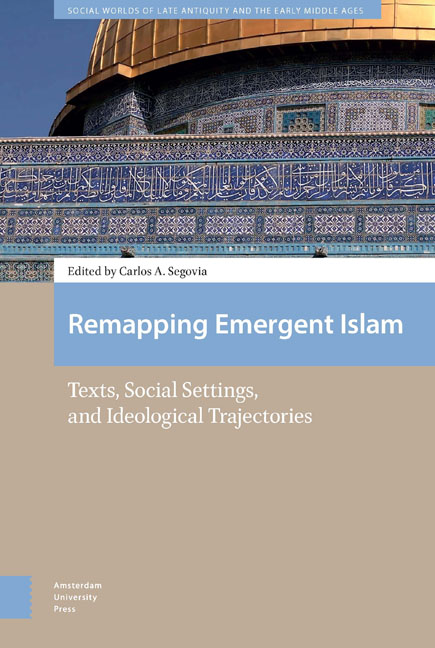Book contents
- Frontmatter
- Contents
- Introduction
- Part 1 Re-Assessing the Hypothesis of a Peripheral Jewish Background
- Part 2 An Encrypted Manichaean / Messalian Matrix?
- Part 3 Measuring the World’s Timeline… and Imagining the Afterlife at the Persian Court?
- Part 4 Conceptual Quicksand, Meta-Narratives of Identity, Texts and their Marginalia
2 - Early Islam as a Messianic Movement: A Non-Issue?
Published online by Cambridge University Press: 24 November 2020
- Frontmatter
- Contents
- Introduction
- Part 1 Re-Assessing the Hypothesis of a Peripheral Jewish Background
- Part 2 An Encrypted Manichaean / Messalian Matrix?
- Part 3 Measuring the World’s Timeline… and Imagining the Afterlife at the Persian Court?
- Part 4 Conceptual Quicksand, Meta-Narratives of Identity, Texts and their Marginalia
Summary
Abstract
José Costa reminds us that, while the Qur’ān refers to Jesus as the ‘Messiah’, it never explains the meaning of the term. And if one leaves aside the ambiguous passages dealing with al-masīḥ, then the Messiah and messianism do not appear in the Qur’ān. This absence is all the more puzzling given that eschatology and apocalypticism do play an important role within it. Costa argues that the early layers of the Qur’ān contain a non-messianic eschatology, and the late layers a non-eschatological Messiah. The former may be related to a Jewish background, the latter connected to Ebionite Christology.
Keywords: Early Islam, Late Antiquity, Messianism, Judaism
According to some scholars, early Islam was a Jewish or Christian messianic movement. Against this background, Muhammad appears as a very special prophet, whose function was to announce the imminent arrival of the Jewish Messiah or the imminent return of the Christian Messiah Jesus. Our aim in the present article is to examine the messianic approach of early Islam in greater detail and to point out the problems it raises. Then we shall ask if other approaches would not better fit both the available evidence and the recent insights of Jewish and Christian studies about the messianic issue.
The Eschatological and Apocalyptic Lore of the Qur’ān
Obviously, the Qur’ān is filled with eschatological materials related to the end of the world, the resurrection of the dead, the final judgement, and the future retribution in paradise or in hell. One of the most important topics of the Qur’ān related to eschatology is the distinction between two worlds: the present world (al-dunyā) and the future world (al-ākhira). The Qur’ān is not only rich in eschatological traditions, but the piety it promotes is defined in eschatological terms. In his book Origins of Islam and Christianity, Tor Andrae emphasised what he called the ‘eschatological piety’ of Muhammad. In his view, the central concern of the Prophet was the final judgement, so that the believer should always remain aware of the judgement's perspective and act accordingly in his life.
As it is well known, eschatology plays also an important role in ancient Judaism and Christianity.
- Type
- Chapter
- Information
- Remapping Emergent IslamTexts, Social Settings, and Ideological Trajectories, pp. 45 - 82Publisher: Amsterdam University PressPrint publication year: 2020



